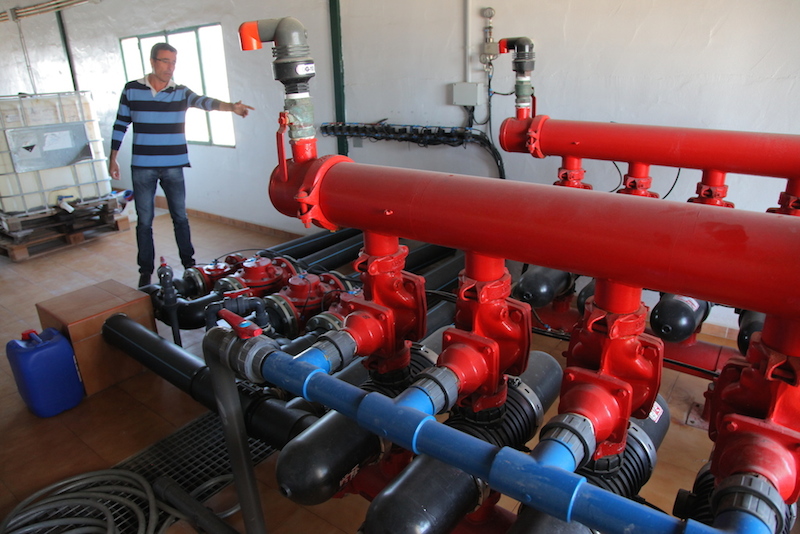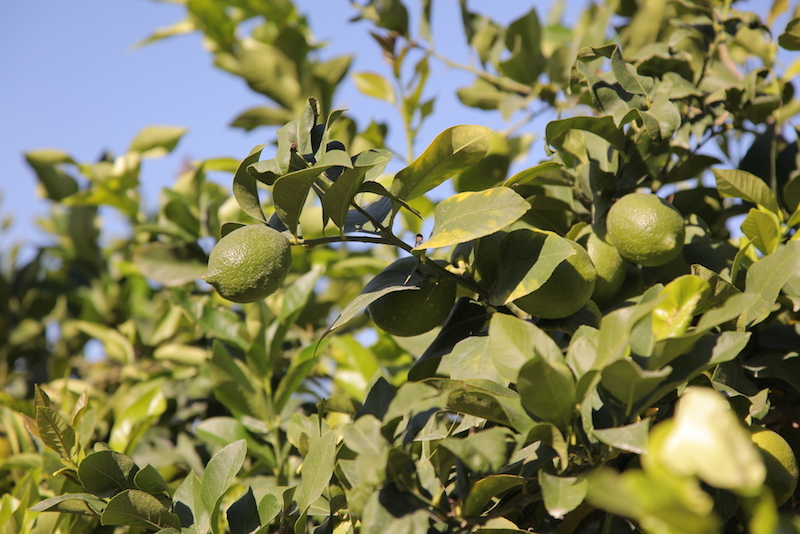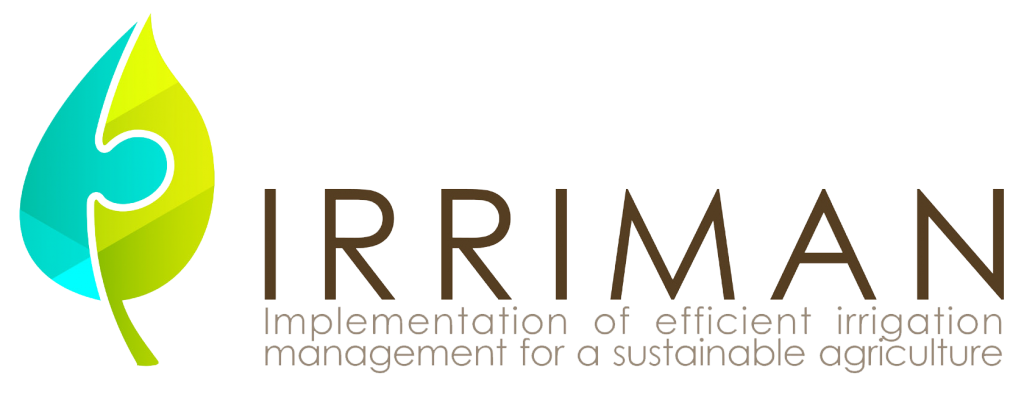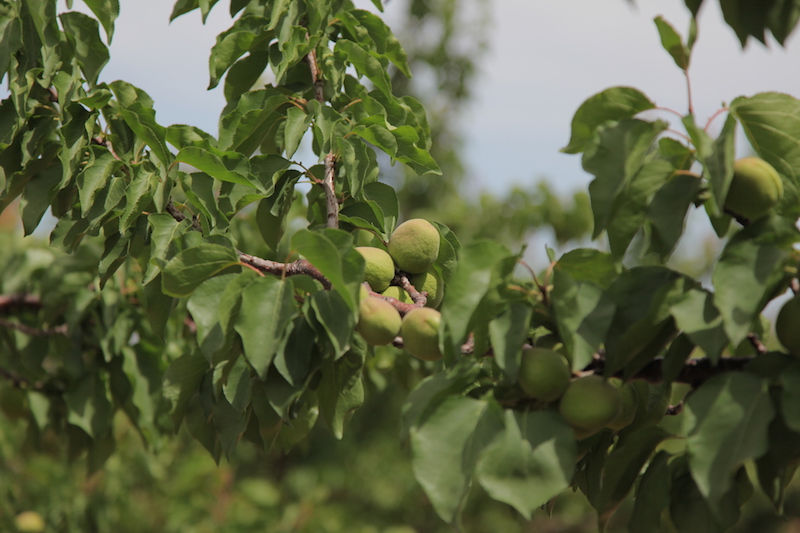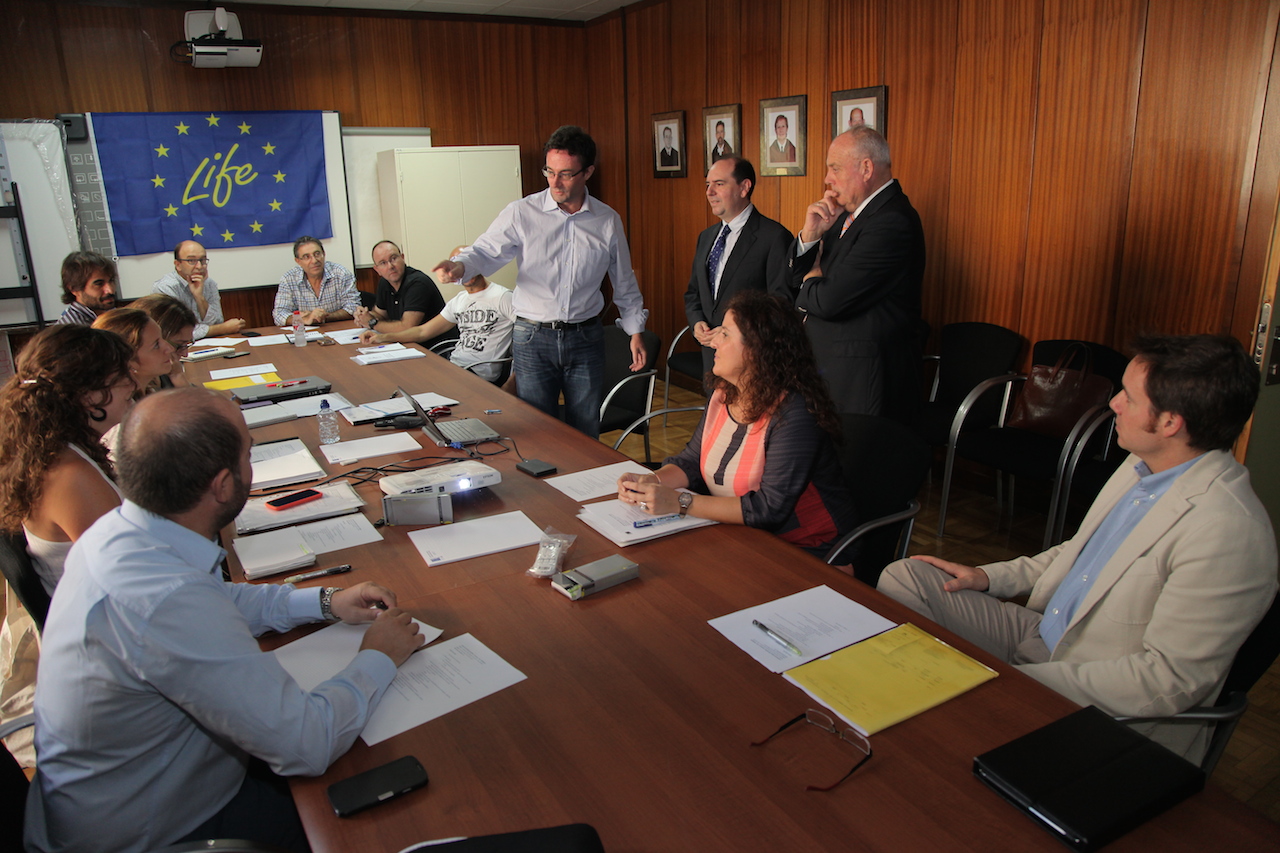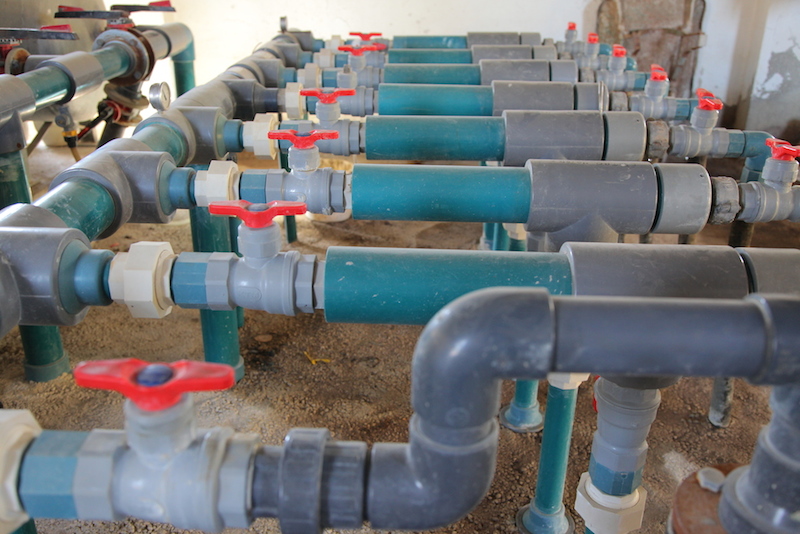Irriman Life+ / Implementation of efficient irrigation management for a sustainable agriculture
LIFE13 ENV/ES/000539
The main result of the project will be the irrigation water saving by 30% with the adoption of deficit irrigation compared to the current irrigation regime applied in agriculture lands.
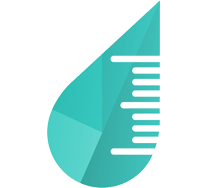
Since the entire irrigation system is pressurized, we expect to reduce by 30% the energy consumption with the implementation of this project.

CO2 emissions due to current energy consumption arise to 0.70 ton/year/ha. Since these emissions will also decrease by 30% with the sustainable irrigation regime by optimization of consumption.

The reduction in water applied by irrigation will maintain crop yield and quality, and will suppose an organoleptic improvement in the harvested fruits, since we expect increments around 10% in the concentration of dissolved solids in juice and around 15% in the colour of fruits.

The water leaching will be reduced, increasing the quantity of crop effective water and productivity of water. We expect that no irrigation water is leached reaching the groundwater. The 30% decrease in irrigation water will decrease chemical fertilization by 30%, minimizing groundwater pollution by leaching of nitrates applied as fertilizer.
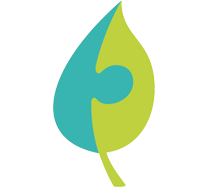
We also expect an annual decrease in CO2 emissions by 40%, owing to the decrease in soil CO2 flux rates by application of deficit irrigation. This directly indicates the quantity of CO2 not released to the atmosphere, and sequestered in soil, by suitable irrigation management, contributing to global warming mitigation.
Actions and means involved
We will start with the setup of demonstration plots with sensors to measure soil and plant water status in different fruit trees farms in three Irrigators’ Community in Murcia and Andalucía Regions. Then, the sustainable irrigation scheduling and adjustment of the irrigation water amount according to the measurements of the sensors will be transferred to the rest of the Irrigators’ Community fields. We will assess the interaction between the sustainable irrigation with environmental conditions. Water and energy consumption, runoff water quantity and quality, water leaching depth, NO3- leaching and the capability of the soil to fix carbon will be evaluated according to the irrigation strategy.
Measurements of the vegetative growth, fruit physicochemical parameters and crop yield so the irrigation can be adjusted at every moment if it is necessary for their adaptation to the quality standards of exportation. We will evaluate the crop yields and the final fruit quality at harvest in order to verify the effectiveness of the sustainable irrigation strategy. As a final and practical step, a model will be created for its use by farmers and irrigations communities so they can implement efficient irrigation for sustainable agriculture in all fields.
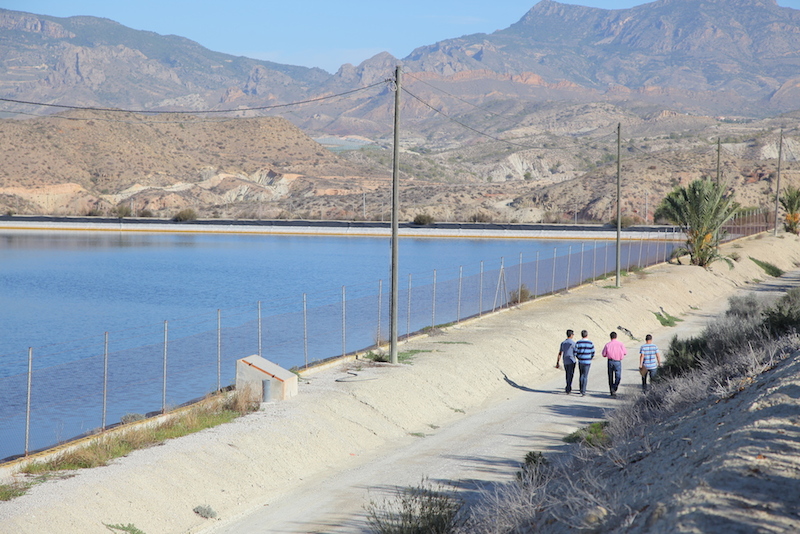
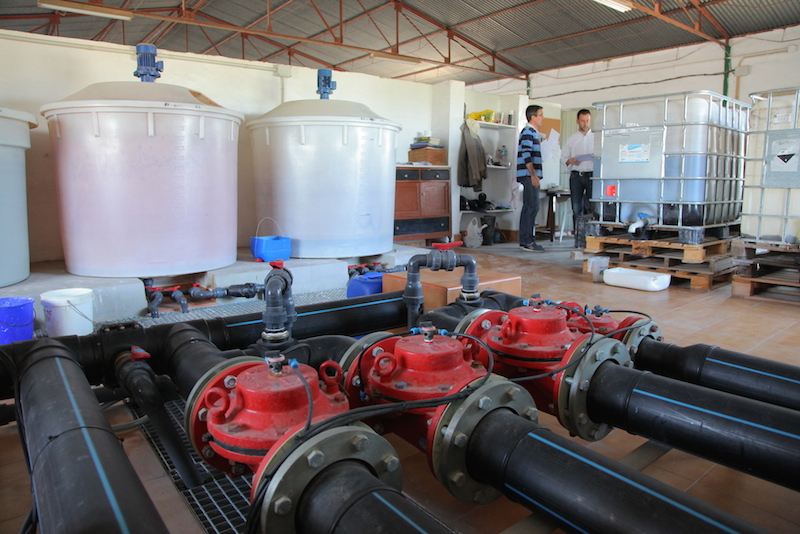
Hectares where the system will be tested
Ha
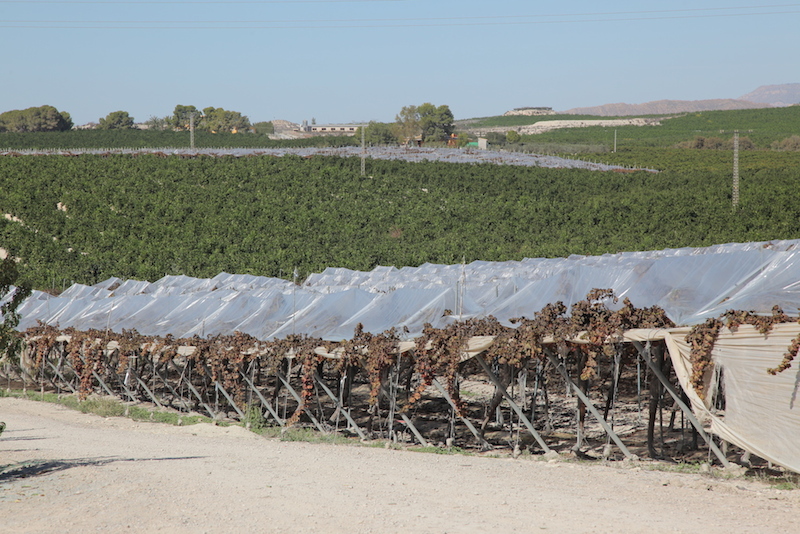
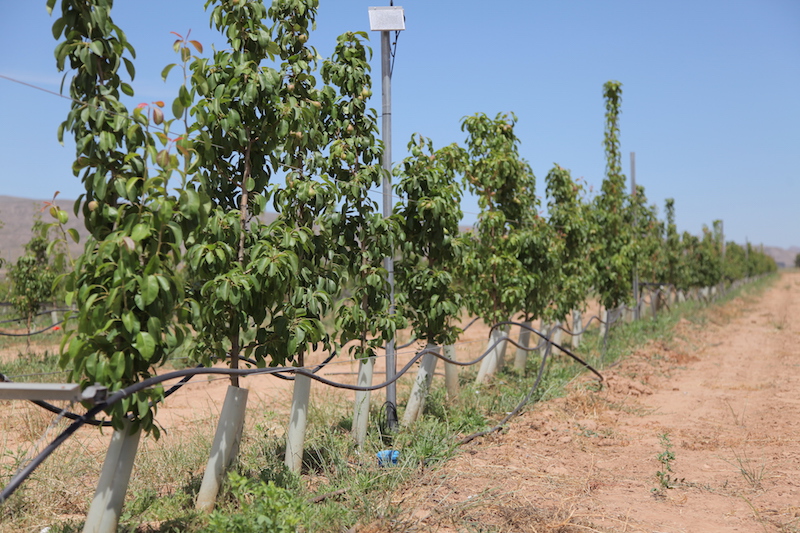
Detailed objectives
-
1. To implement a sustainable irrigation in demonstrative plots in different woody crops, by using different water quality, paying special attention to reuse treated wastewater. Different soil, water and environmental indicators will be selected to define the irrigation strategy and increase water productivity.
2. To extrapolate the irrigation procedure to the total surface of the demonstration farms.
3. To characterize the agronomical and physiological response of crops by using precision tools for measuring the soil and plant water status and the incidence of sustained/deficit irrigation on crop yield and fruit quality.
4. To validate the decrease of deficit irrigation on water consumption, water leaching, soil and water pollution by nitrates, soil CO2 release and energy consumption.
5. To elaborate expert control models for the self-regulation of the different deficit irrigation treatments according to the established irrigation instructions, to be widely disseminated.
6. To disseminate and transfer knowledge and technology generated at regional, national and European level by means of public information adapted to different stakeholders.
